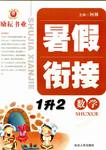ћвƒњƒЏ»Ё
°Њћвƒњ°њЌк–ќћоњ’
‘ƒґЅѕ¬√жґћќƒ£ђ’∆ќ’∆діу“в£ђ»їЇуі”ЄчћвЋщЄшµƒЋƒЄц—°ѕо(A°ҐB°ҐCЇЌD)÷–£ђ—°≥ц„оЉ——°ѕо°£
The man lay in the bed, his pale figure disappearing into the white sheet. He had a bone transplant for leukemia(∞„—™≤°).
I tiptoed in, for fear of him. °∞Hello, Mr. Jensen. I°ѓm Hanne, your nurse°±.
He nodded and closed his eyes. I his vital signs to make sure he was OK. °∞Would you like some soup?°± I asked. He shook his head.
I came back later with medicine and some newspapers. , he took it and sank back against the pillow. I offered him the , but he wasn°ѓt interested.
Feeling , I left.
In the kitchen, I was about to pour myself a cup of tea when I , and grabbed a large teapot. I placed the teapot, toast and two on a tray, and walked toward his room.
°∞Would I disturb you if I have my tea in your ?°± I asked, °∞I°ѓd like to watch the .°±
°∞Not at all,°± but he was clearly .
I put the TV on, and noticed him watching the news. I said, °∞I brought a(an) cup, if you°ѓd like some tea.°±
°∞Maybe I°ѓll have half a cup.°±
We watched in silence I noticed he was nodding off. The next night he had two cups of tea and a piece of toast°™his first food in a month. The third night he told me about his family, who hadn°ѓt been able to , which made him lonely. On the fourth night, he got out of bed and was medicine. A few days later, his bed was . He had recovered enough to leave the hospital.
Four months later I was out shopping when I heard a voice.
°∞Hanne, it°ѓs good to see you!°±
I almost didn°ѓt Mr. Jensen.
°∞This is Hanne,°± he said, introducing me to his wife. °∞She saved my life with .°±
°Њ1°њA. got across B. turned out C. taken up D. gone through
°Њ2°њA. hurting B. frightening C. disturbing D. seeing
°Њ3°њA. checked B. fixed C. changed D. moved
°Њ4°њA. Happily B. Excitedly C. Painfully D. Disappointedly
°Њ5°њA. medicine B. papers C. magazines D. water
°Њ6°њA. excited B. defeated C. encouraged D. calm
°Њ7°њA. paused B. rushed C. noticed D. dropped
°Њ8°њA. dishes B. pills C. bowls D. cups
°Њ9°њA. room B. home C. kitchen D. office
°Њ10°њA. sports B. news C. plays D. dramas
°Њ11°њA. happy B. worried C. surprised D. eager
°Њ12°њA. different B. special C. nice D. extra
°Њ13°њA. after B. until C. when D. since
°Њ14°њA. delicious B. hot C. liquid D. solid
°Њ15°њA. visit B. work C. afford D. travel
°Њ16°њA. on B. beyond C. off D. against
°Њ17°њA. broken B. empty C. dirty D. gone
°Њ18°њA. shy B. hopeless C. friendly D. cheerful
°Њ19°њA. recognize B. realize C. know D. learn
°Њ20°њA. soup B. tea C. toast D. news
°Њір∞Є°њ
°Њ1°њD
°Њ2°њC
°Њ3°њA
°Њ4°њC
°Њ5°њB
°Њ6°њB
°Њ7°њA
°Њ8°њD
°Њ9°њA
°Њ10°њB
°Њ11°њC
°Њ12°њD
°Њ13°њB
°Њ14°њD
°Њ15°њA
°Њ16°њC
°Њ17°њB
°Њ18°њD
°Њ19°њA
°Њ20°њB
°Њљвќц°њ
°Њќƒ’¬іу“в°њ±Њќƒ «“ї∆™Љ«–рќƒ°£ќƒ’¬љй…№ЅЋ„ч’яЌ®єэ„‘ЉЇµƒƒЌ–ƒЉ∞÷«їџ∞п÷ъ≤°»ЋњµЄі≥ц‘Їµƒє ¬°£
°Њ1°њD њЉ≤йґѓі ґћ”п±жќц°£ЄщЊЁµЏ“ї°ҐґюЊдµƒ√и цњ…÷™ЋыЄ’Є’Њ≠јъєэ“їіќє«Ћи“∆÷≤ ÷ х°£go through°∞Њ≠јъ°±°£get acrossЇбєэ£®¬н¬Ј°ҐЇ”µ»£©£ђ£® є£©±їјнљв£їturn outљбєы «£ђ÷§√ч «£їtake up ’ЉЊЁ£ђ’Љ”√£ђњ™ Љі” ¬°£ “тіЋ—°Dѕо°£
°Њ2°њC њЉ≤йґѓі ±жќц°£„ч’яхЏ„≈љ≈Љв«б«б„яљш≤°Јњ£ђ…ъ≈¬іт»≈µљ≤°»Ћ°£disturb°∞іт»≈£ђ ЈЅ∞≠£®Ћѓ√я°Ґ–ЁѕҐµ»£©°±°£hurtЋрЇ¶£ђ є №…Ћ£ђ є…Ћ–ƒ£їfrighten єЊ™ѕ≈£ђ єЊ™њ÷£їseeњіµљ°£“тіЋ—°Cѕо°£
°Њ3°њA њЉ≤йґѓі ±жќц°£ї§ њЉм≤й≤°»Ћµƒ…ъ√ьће’ч“‘»Ј±£≤°»Ћµƒ„іњц’э≥£°£check°∞Љм≤й£ђЇЋґ‘°±°£fixєћґ®£ђ–ёјн£їchangeЄƒ±д£їmove“∆ґѓ£ђ∞бґѓ°£“тіЋ—°A ѕо°£
°Њ4°њC њЉ≤йЄ±і ±жќц°£ЄщЊЁ≥£ ґ£ђЄ’„цЌк ÷ хµƒ≤°»Ћ£ђЋыµƒ“їЊў“їґѓґЉїбЄшЋыішјіЌіња°£painfully°∞ЌіњаµЎ°±°£happilyњмј÷µЎ£ђЄя–ЋµЎ£їexcitedly–ЋЈ№µЎ£ђЉ§ґѓµЎ£їdisappointedly ІЌыµЎ°£є —°Cѕо°£
°Њ5°њB њЉ≤й√ыі ±жќц°£ЄщЊЁ…ѕќƒњ…÷™£ђ„ч’яішјіЅЋmedicineЇЌnewspaper£ђ≤°»Ћ≥‘єэЅЋ“©£ђ„ч’я∞—±®÷љµЁЄшЋы°£papers=newspapers°∞±®÷љ°±°£medicine“©£їmagazine‘”÷Њ£їwaterЋЃ°£є —°Bѕо°£
°Њ6°њB њЉ≤й–ќ»Ёі ±жќц°£”…”Џґ‘Јљ√ї”–љ” №„ч’яµƒЇ√“в£ђ„ч’яЄ–µљ №ім°£defeated°∞ №імµƒ°±°£excitedЉ§ґѓµƒ£їencouraged №єƒќиµƒ£їcalm∆љЊ≤µƒ£ђ’тґ®µƒ°£є —°Bѕо°£
°Њ7°њA њЉ≤йґѓі ±жќц°£ЄщЊЁѕ¬ќƒњ…÷™£ђ„ч’яіш„≈ґЂќч»•ЅЋ≤°»Ћµƒ≤°Јњ£ђЋщ“‘ЋэЌ£ѕ¬’э‘Џ„цµƒ ¬«й°£pause°∞‘ЁЌ£°±°£rush√Ќ≥е£ђ≤÷іў–– ¬£їnotice£®ќё“в÷–£©„Ґ“вµљ£їdrop¬дѕ¬£ђµшµє°£є —°Aѕо°£
°Њ8°њD њЉ≤й√ыі ±жќц°£ЄщЊЁѕ¬ќƒµЏ32њ’Їу√жµƒcupњ…÷™£ђіЋі¶”¶ќ™cups£®≤и±≠£©°£cup°∞≤и±≠°±°£dish≈ћ„”£їpill“©Ќи£їbowlЌл°£є —°Dѕо°£
°Њ9°њA њЉ≤й√ыі ±жќц°£ЄщЊЁ…ѕќƒµЏ28њ’Їу√жµƒ°∞walked toward his room°±њ…÷™£ђіЋі¶”¶ќ™room£®ЈњЉд£©°£room°∞ЈњЉд°±°£homeЉ“£їkitchen≥шЈњ£їoffice∞мєЂ “°£є —°Aѕо°£
°Њ10°њB њЉ≤й√ыі ±жќц°£ЄщЊЁѕ¬ќƒµЏ32њ’«∞√жµƒ°∞noticed him watching the news°± њ…÷™іЋі¶”¶ќ™news°£news°∞–¬ќ≈°±°£sports‘Ћґѓ£їplay”ќѕЈ£ђ±»»ь£ђѕЈЊз£їdramaѕЈЊз°£є —°Bѕо°£
°Њ11°њC њЉ≤й–ќ»Ёі ±жќц°£ґ‘”Џ„ч’яµƒ«л«у£ђ≤°»ЋЋд»їЋµ√ї ¬£ђµЂ «ƒЏ–ƒїє «∆ƒЄ–“вЌвµƒ°£surprised°∞Њ™—»µƒ£ђЄ–Њх“вЌвµƒ°±°£happyЄя–Ћµƒ£їworriedµ£”«µƒ£ђµ£–ƒµƒ£їeagerЉ±«–£ђњ Ќыµƒ°£є —°Cѕо°£
°Њ12°њD њЉ≤й–ќ»Ёі ±жќц°£„ч’яішЅЋЅљЄц±≠„”£ђ„‘ЉЇ”√ЅЋ“їЄц£ђЅнЌв“їЄцЊЌ «ґоЌвµƒ°£extra°∞ґоЌвµƒ°±°£different ≤їЌђµƒ£їspecialћЎ±рµƒ£ђ„®√≈µƒ£їnice√јЇ√µƒ£ђЅо»Ћ”дњмµƒ°£є —°Dѕо°£
°Њ13°њB њЉ≤йЅђі ±жќц°£„ч’яЇЌ≤°»Ћ“ї…щ≤їѕмµЎњіµз ”£ђ÷±µљ„ч’я„Ґ“вµљ≤°»Ћ‘ЏітоІЋѓ°£until°∞÷±µљ°±°£after‘Џ°≠°≠÷ЃЇу£їwhenµ±°≠°≠ ±£їsince„‘і”°£є —°Bѕо°£
°Њ14°њD њЉ≤й–ќ»Ёі ±жќц°£ЄщЊЁ≥£ ґ£ђtoast£®њЊ√ж∞ь£© ф”Џєћћђ ≥ќп°£solid°∞єћћђµƒ°±°£delicious√јќґµƒ£ђњ…њЏµƒ£їhot»»µƒ£ђј±µƒ£їliquid“Їћђµƒ°£є —°Dѕо°£
°Њ15°њA њЉ≤йґѓі ±жќц°£ЄщЊЁЄ√њ’Їу√жµƒ°∞which made him lonely°±ЇЌ”пЊ≥њ…÷™£ђЋыµƒЉ“»Ћ√ї”–‘ЏЋы…н±я£ђќёЈ®јіњіЋы°£visit°∞∞ЁЈ√£ђњіЌы°±°£workє§„ч£їafford÷ІЄґµ√∆р£їtravel¬√––°£є —°Aѕо°£
°Њ16°њC њЉ≤йљйі ±жќц°£≤°»Ћ÷рљ•њµЄіЅЋ£ђЋщ“‘ґѕ“©ЅЋ°£off“вќ™°∞√ї”–£ђ≤ї‘ўє©”¶°±£ђoff medicine°∞≤ї‘ў≥‘“©°±°£onєЎ”Џ£їbeyond≥ђєэ£їagainstЈіґ‘°£є —°Cѕо°£
°Њ17°њB њЉ≤й–ќ»Ёі ±жќц°£≤°»Ћ“—Њ≠њµЄі≥ц‘Ї£ђє ≤°і≤ «њ’µƒ°£empty°∞њ’µƒ°±°£broken∆∆Ћйµƒ£ђітЋйµƒ£їdirty∞є‘аµƒ£їgone≤їЉыЅЋ°£є —°Bѕо°£
°Њ18°њD њЉ≤й–ќ»Ёі ±жќц°£‘Џ„ч’яµƒ∞п÷ъѕ¬£ђ’вќї≤°»Ћ„я≥цЅЋјІЊ≥£ђЋщ“‘ЋыЉыµљ„ч’я ±”¶Є√ «Єя–Ћµƒ°£cheerful°∞Єя–Ћµƒ£ђ–ЋЄя≤…Ѕ“µƒ°±°£shyЇ¶–яµƒ£їhopeless√ї”–ѕ£Ќыµƒ£ђЊшЌыµƒ£їfriendly”—Ї√µƒ°£є —°Dѕо°£
°Њ19°њA њЉ≤йґѓі ±жќц°£іЋі¶∞µ Њ≤°»ЋњµЄіЇу£ђ„іћђіу≤ї“ї—щ£ђЋщ“‘„ч’яЉЄЇх√ї”–»ѕ≥цјіЋы°£recognize°∞±ж»ѕ≥ц°±°£realize“в ґµљ£їknow÷™µј£ђЅЋљв£їlearn—Іµљ°£є —°Aѕо°£
°Њ20°њB њЉ≤й√ыі ±жќц°£ЄщЊЁ…ѕќƒњ…÷™£ђ„ч’яЌ®єэ”л≤°»ЋЇ»≤иЅƒћм»√≤°»ЋЄ–µљќ¬≈ѓ£ђі”ґш’с„ч∆рјі°£tea°∞≤и°±°£soupћј£їtoastњЊ√ж∞ь£їnews–¬ќ≈°£є —°Bѕо°£

 јш‘≈ й“µ оЉўѕќљ”ƒю≤®≥ц∞ж…зѕµЅ–ір∞Є
јш‘≈ й“µ оЉўѕќљ”ƒю≤®≥ц∞ж…зѕµЅ–ір∞Є